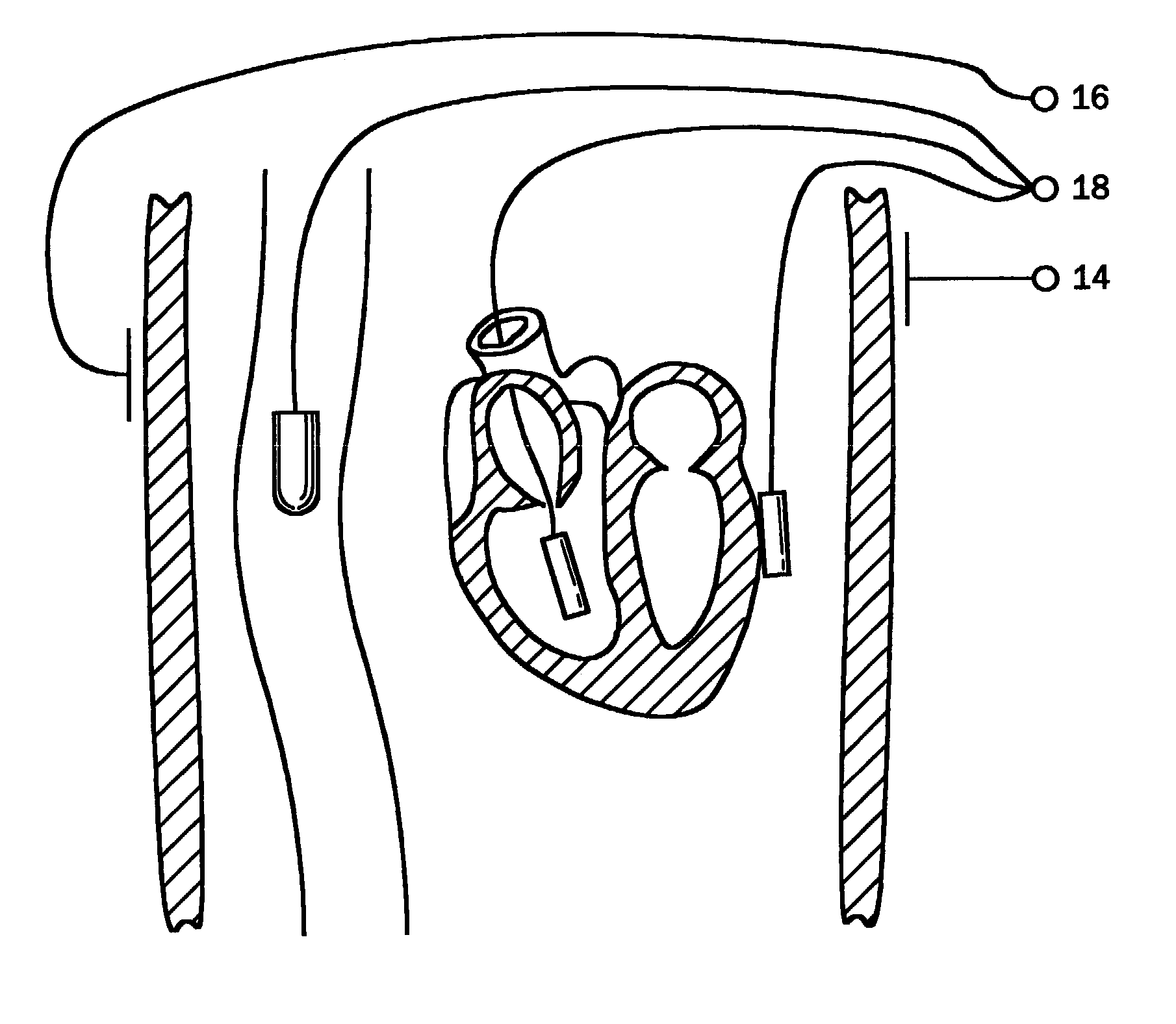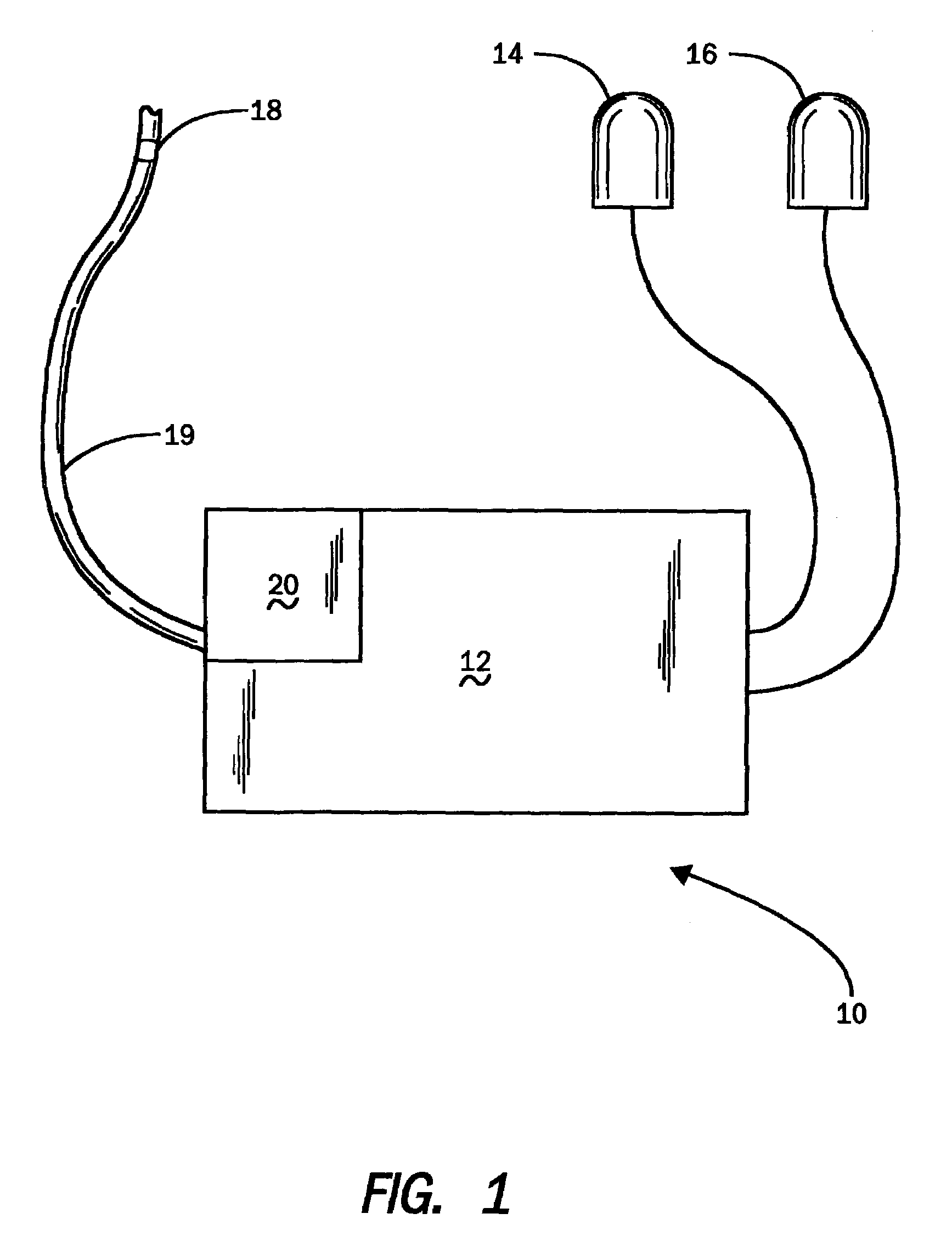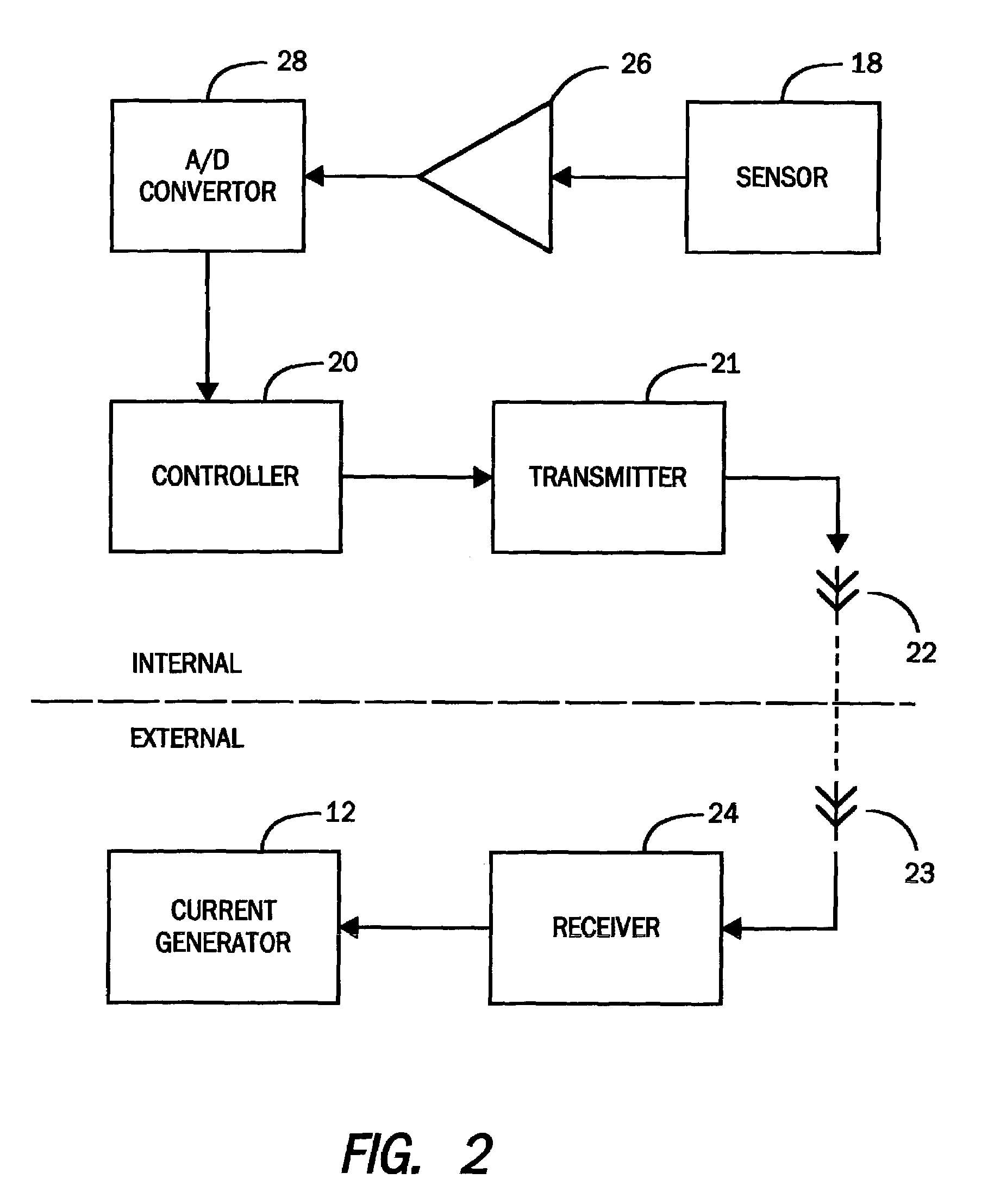Therapeutic device and method for treating diseases of cardiac muscle
a technology of cardiac muscle and therapeutic device, which is applied in the field of apparatus and method for treating the heart, can solve the problems of exacerbated deteriorating condition of the heart, few therapies address the problem of tissue remodeling, adversely affect the heart's performance, etc., and achieves uniform current density, reducing the risk of heart disease, and promoting healing of diseased or inflamed tissue.
- Summary
- Abstract
- Description
- Claims
- Application Information
AI Technical Summary
Benefits of technology
Problems solved by technology
Method used
Image
Examples
Embodiment Construction
[0025]The present invention is described generally as a therapy for promoting remodeling of a patient's heart. Those skilled in the art will recognize the improvements and advantages conferred by the present invention in the treatment of heart disease and heart failure, the specific etiologies including, but not limited to, ischemic cardiomyopathy, idiopathic dilated cardiomyopathy, other cardiomyopathies, myocarditis and atrial fibrillation.
[0026]An apparatus 10 in accordance with the present invention is shown in FIG. 1. Apparatus 10 includes a current generator 12, a first electrode 14, a second electrode 16, a sensor 18, and a controller 20. First electrode 14 and second electrode 16 are configured to be externally positioned about the patient and are typically connected to current generator 12 by an insulated conductive wire. Typically, the electrodes are patch electrodes configured to be adhesively secured to the skin of a patient. Current generator 12 is configured to provide...
PUM
 Login to View More
Login to View More Abstract
Description
Claims
Application Information
 Login to View More
Login to View More - R&D
- Intellectual Property
- Life Sciences
- Materials
- Tech Scout
- Unparalleled Data Quality
- Higher Quality Content
- 60% Fewer Hallucinations
Browse by: Latest US Patents, China's latest patents, Technical Efficacy Thesaurus, Application Domain, Technology Topic, Popular Technical Reports.
© 2025 PatSnap. All rights reserved.Legal|Privacy policy|Modern Slavery Act Transparency Statement|Sitemap|About US| Contact US: help@patsnap.com



